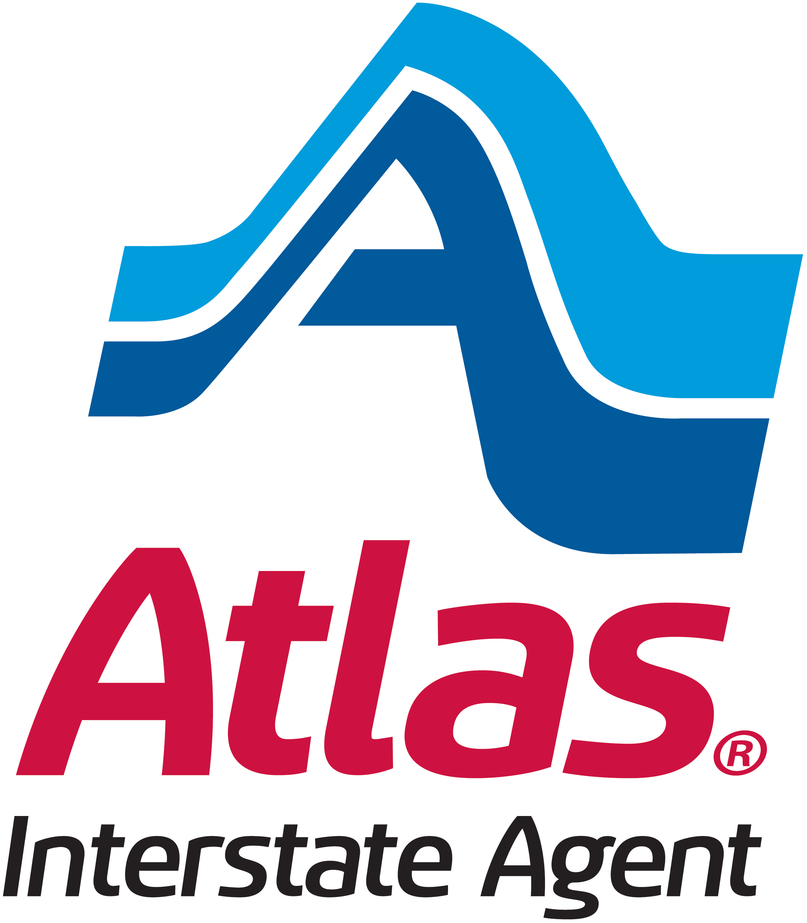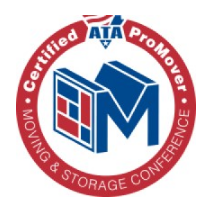Understanding Types of Moving Companies: Cost & Service Guide

The complexity of moving extends far beyond boxes and bubble wrap – it’s about finding the right partner to protect your belongings and peace of mind.
Today’s moving terrain offers everything from traditional full-service companies to innovative hybrid solutions, each designed to match specific relocation needs and budgets. Understanding these options isn’t just about making a choice – it’s about making the smart choice that aligns with your unique situation.
Moving services have evolved dramatically to meet diverse consumer needs. Local movers now offer hourly rates with specialized expertise in exploring city regulations, while long-distance providers maintain sophisticated tracking systems for cross-country peace of mind.
International relocation experts handle complex customs requirements, and specialty movers focus on transporting precious items like antiques or fine art with museum-grade care.
The key lies in matching your specific requirements with the right type of moving service. Some situations call for detailed full-service support, including professional packing and unpacking.
Others might benefit from flexible hybrid options that combine truck rental with professional loading assistance. From commercial relocations requiring minimal business disruption to specialized art transport demanding climate-controlled environments, modern moving companies offer solutions for virtually every scenario.
Primary Categories of Moving Companies
Moving companies come in three distinct varieties, each designed for specific relocation needs. With years of experience in the industry, we’ve seen firsthand how choosing the right type of mover makes all the difference in a successful move.
Local Moving Services
Local moving services handle relocations within a 100-mile radius, perfect for intrastate moves. Here’s what makes them unique:
- Hourly-based pricing that covers loading, driving, and unloading
- Transparent cost structure – you only pay for actual time spent
- Teams familiar with your specific area and local requirements
State regulations shape every aspect of local moving operations. Take Illinois, for example – local movers must maintain $750,000 in cargo insurance and pass regular vehicle inspections. These strict requirements aren’t just bureaucratic red tape – they’re essential safeguards that protect your belongings and ensure reliable service.
Long-Distance Moving Options
When your move stretches beyond 100 miles or crosses state lines, that’s where specialized moving long-distances expertise becomes crucial. The Federal Motor Carrier Safety Administration (FMCSA) oversees these moves with strict requirements:
- Specific licensing for interstate operations
- Complete insurance protection
- Regular safety compliance checks
- Detailed documentation requirements
Unlike local moves, long-distance pricing depends on three key factors:
- Shipment weight
- Travel distance
- Additional services needed
Extra costs might include fuel surcharges, specialized packing materials, or handling requirements for unique items like pianos or artwork.
International Relocation Services
International moving represents the most sophisticated type of relocation. Think of them as a complex puzzle where every piece – from customs clearance to overseas shipping – must fit perfectly. Professional international movers coordinate:
- Customs documentation and compliance
-
- Multiple transportation methods
- International partnerships and logistics
- Duty calculations and payments
Transportation options typically include:
Air Freight:
- Fastest delivery method
- Ideal for urgent moves
- Higher cost point
- Limited capacity
Sea Freight:
- Most economical for large shipments
- Longer transit times
- Greater capacity
- Ideal for whole-house moves
Many international relocations combine these methods, creating a seamless door-to-door experience. For instance, your belongings might travel by truck to a port, cross the ocean via container ship, and reach their final destination through local delivery services.
Service-Based Classifications
Looking to plan your next move? Understanding the different types of moving services available can help you choose the option that best balances convenience, cost, and the level of hands-on involvement required for your situation.
Full-Service Moving Companies
Full-service moving companies, like Nelson Westerberg, take care of every detail from start to finish. Picture this: experienced professionals arrive with premium packing materials, carefully wrap your china collection, disassemble your furniture, and strategically load everything into the truck. At your new home, they handle the reverse process with the same attention to detail.
The real value of full-service moving lies in its precise and careful approach:
- Professional packing materials and techniques
- Expert furniture disassembly and reassembly
- Strategic loading methods for maximum protection
- Complete unpacking and setup at your destination
For busy professionals, growing families, or anyone who values their time and peace of mind, full-service moving transforms a potentially stressful experience into a seamless transition.
Self-Service Moving Solutions
Want more control over your move while keeping costs in check? Self-service options put you in the driver’s seat – literally. Traditional truck rental services give you complete control over the entire process, from choosing the size of a moving truck to packing and transportation. This works especially well for local moves and those comfortable handling larger vehicles
Container moving offers an innovative middle ground:
- A container gets delivered to your current home
- Pack at your own pace – no rush
- Professional transportation to your new location
- Unload when it arrives at your convenience
This approach eliminates the stress of driving a large truck while still letting you manage the packing process on your terms.
Hybrid Moving Services
Think of hybrid moving as the “best of both worlds” approach. Need help with the heavy lifting but want to handle the rest? Labor-only services bring in professionals for loading and unloading while you manage transportation. It’s perfect for those looking to balance cost savings with physical convenience.
Customizable service packages let you pick and choose exactly what you need:
-
- Professional packing for specific rooms or items
- Loading and unloading assistance
- Furniture disassembly services
- Transportation options
The beauty of hybrid services lies in their flexibility – create a moving plan that aligns perfectly with your budget, timeline, and comfort level. Whether you need help with just the heavy furniture or want everything but the packing handled, there’s a combination that fits your needs.
Specialized Moving Services
Moving high-value or unique items requires more than just careful handling – it demands specialized expertise and equipment that sets premium moving services apart. Here’s what makes these services essential for protecting your valuable possessions during relocation.
Commercial Relocation Experts
Business relocations present unique challenges that go far beyond standard moving services. Our commercial teams at Nelson Westerberg bring years of experience in minimizing operational disruptions while protecting your valuable assets. We handle sophisticated equipment with military precision – from enterprise-level servers to sensitive medical devices.
Here’s what sets our approach apart:
- Strategic off-hours coordination to maintain business continuity
- Systematic labeling and tracking of every item
- Dedicated project managers who oversee entire relocations
- Specialized equipment for moving heavy machinery and electronics
- Secure handling protocols for confidential documents and files
Fine Art And Antique Transport
Precious artwork and antiques deserve museum-level care during transit. Our fine art specialists employ proven techniques developed through decades of handling priceless pieces:
- Custom-built crates with precise climate control
- Detailed condition reporting with high-resolution photography
- White-glove handling protocols for each unique piece
- GPS-tracked, air-ride-equipped vehicles
- Temperature and humidity monitoring throughout transit
Standard moving insurance falls short for valuable collections. That’s why we offer specialized coverage options specifically designed for fine art and antiques. Each policy reflects the true value of your pieces, providing genuine protection throughout the moving process.
Vehicle Transportation Services
Protecting your vehicle during transport comes down to choosing the right method for your specific needs. Enclosed transport offers complete protection from weather, road debris, and prying eyes – perfect for luxury vehicles, classic cars, or any automobile requiring premium care.
Open transport delivers reliable, cost-effective service ideal for daily drivers and standard vehicles. Interstate vehicle transport involves comprehending intricate regulations and requirements. Our auto transport specialists handle every detail:
- Complete documentation management
- State-specific compliance verification is handled efficiently
- Complete insurance coverage
- Real-time shipment tracking
- Professional drivers with specialized vehicle handling expertise
Cost Structure And Pricing Models
Moving costs shouldn’t be a mystery. Here’s a practical breakdown of the three main pricing structures you’ll encounter – each designed for different types of moves and situations.
Hourly Rate Services
Local moves typically run on an hourly rate system. Here’s what drives the cost:
-
- Number of movers assigned (usually 2-4 professionals)
- Total hours required for the job
- Drive time to and from your location
- Special handling requirements
A practical example: Moving a one-bedroom apartment might need two movers for 4 hours, while a 3-bedroom house could require three movers for 8-10 hours. At Nelson Westerberg, we believe in crystal-clear pricing – that’s why we detail costs of local moves and potential extra charges upfront, like specialty item handling or additional stops.
Weight-Based Pricing
For long-distance moves, weight becomes the key factor. The math is straightforward: Your shipment’s weight × distance traveled = base cost. This system works equally well whether you’re moving into a studio apartment or a 5-bedroom house.
What affects your final price:
-
- Total weight of your belongings
- Distance to your new home
- Fuel surcharges (based on current rates)
- Access fees (like long carries or elevator usage)
- Optional storage needs
Before your move, our professional team conducts an in-home estimate to calculate accurate weights – no guesswork involved.
Flat Rate Options
Think of flat rate moving as an all-inclusive package. One price covers your entire move, including:
- Labor costs
- Transportation
- Basic insurance coverage
- Standard packing materials
This option shines for moves with predictable scope and straightforward logistics. While flat rates offer budget certainty, they typically don’t include extras like additional stops or specialty item handling. Choose this option when you have a clear picture of your moving needs and prefer the simplicity of a single, total price.
Pro tip: Flat rates work best for direct, point-to-point moves without complex logistics or multiple delivery locations. To better understand the overall cost of hiring moving services, evaluating your needs under different pricing models is key.
Selecting The Right Moving Service
Planning a move? Let’s cut through the complexity and focus on what really matters in choosing a moving service that fits your specific situation. Here’s a practical guide to making this important decision with confidence.
Evaluation Criteria
The success of your move largely depends on two key factors: distance and volume. For local moves under 100 miles, hourly-rate services typically offer the best value.
Long-distance relocations need specialized interstate movers with specific licenses and equipment to handle the journey. At Nelson Westerberg, our detailed home surveys take the guesswork out of estimating your moving volume, leading to more accurate quotes and better resource planning.
Smart budgeting means looking beyond the initial price tag. While DIY moving might seem like a money-saver, the real costs add up quickly:
- Packing materials and supplies
- Truck rental and fuel costs
- Potential repair costs for damaged items
- Time investment and physical strain
Service Level Assessment
Take a realistic look at what you can handle versus what’s better left to professionals. Full-service moving companies handle everything from start to finish – perfect for busy professionals, families with young children, or anyone with physical limitations. Looking to save money while still getting help with the heavy lifting? Hybrid services let you tackle the packing while professionals handle loading and unloading.
Time often becomes the deciding factor in choosing moving services. A professional moving team can typically complete in 6-8 hours what might take 3-4 days of DIY effort. Consider these timing factors:
- Available days for moving
- Work and family commitments
- Property access restrictions
- Seasonal weather conditions
Risk Management
Protecting your belongings starts with understanding insurance coverage. Basic liability protection, while included with professional services, typically offers minimal coverage based on weight – around $0.60 per pound per item. For valuable items like antiques or electronics, full-value protection provides detailed coverage against loss or damage.
Professional moving companies maintain rigorous insurance standards and licensing requirements that set them apart from basic rental services. Before making your choice:
- Verify current insurance certificates
- Review coverage limits and exclusions
- Understand claim procedures
- Document valuable items before the move
Remember: The right moving service balances protection, convenience, and cost while aligning with your specific needs. Taking time to evaluate these factors now saves considerable stress during your actual move.
Frequently Asked Questions
- What’s the most cost-effective type of moving company for a local move?
Here’s a practical truth about local moves: while rental trucks might look cheaper on paper, professional local movers often deliver better value for your investment. Think about it – hourly-rate local moving companies bring trained teams, proper equipment, and complete insurance protection to your doorstep.
A typical DIY truck rental comes with hidden costs: $100-200 for fuel, additional insurance fees, and potential expenses from accidental damage.
Plus, there’s the physical toll on your body to consider. Professional movers complete in 4 hours what might take you an entire weekend, protecting both your belongings and your back in the process.
- How do international moving companies differ from domestic ones?
International movers bring specialized expertise that goes well beyond loading and unloading boxes. These companies handle complex customs regulations, coordinate overseas shipping logistics, and maintain partnerships with foreign agents to ensure smooth transitions across borders.
Picture this: while domestic movers focus on getting your items from point A to B, international specialists handle everything from proper crating for ocean transport to detailed documentation for customs clearance.
They’re experts in international shipping regulations and know exactly which items you can (and can’t) bring into your new country.
- When should I choose a specialty moving company over a standard service?
Got valuable or unique items? That’s where specialty movers shine. These experts handle items that need extra care – think grand pianos worth $30,000+, priceless artwork, delicate antiques, or sophisticated laboratory equipment.
Standard moving services might save you money upfront, but specialty movers bring crucial advantages: teams trained in specialized handling techniques, custom-designed equipment, and extensive expertise with irreplaceable items.
A specialty mover might cost 20-30% more than standard services, but that investment protects items that would be impossible or extremely costly to replace.
- What’s the difference between a moving broker and a direct moving company?
Let’s break down this important distinction: Moving brokers connect you with moving companies but don’t own trucks or employ moving crews. They’re middlemen who book your move with other companies.
Direct moving companies, alternatively, handle your entire move with their own equipment and trained staff. Working with direct movers means clearer communication – you’re talking directly with the team handling your belongings. Plus, there’s better accountability since one company manages the whole process from start to finish.
- How far in advance should I book different types of moving services?
Smart planning makes for smoother moves. Here’s a practical timeline: Local moves need 2-4 weeks’ notice, while cross-country relocations require 4-6 weeks of lead time. Planning an international move?
Lock in your dates 6-8 weeks ahead. Moving during peak season (May-September)? Add an extra 2-3 weeks to these timeframes. For specialty items or business relocations, start even earlier – ideally 8-10 weeks out. This ensures you get your preferred dates and any specialized equipment needed for your move.
Conclusion
Let’s bring all these moving company insights together in a way that matters for your upcoming relocation. Here’s what we’ve discovered: the moving industry offers specialized solutions for every situation, from local moves to international relocations.
Think of it like choosing the right tool for the job – you wouldn’t use a sledgehammer to hang a picture frame, right?
For local moves within a 50-mile radius, hourly-rate movers typically offer the most cost-effective solution.
Cross-country relocations? Full-service moving companies shine here, handling everything from that delicate china set to your grandmother’s antique dresser. For international moves, specialized movers with customs expertise become your essential partners, helping you manage complex international shipping and regulatory requirements.
Here’s a practical tip: match your specific needs to the right type of mover. Consider these key factors:
- Budget constraints and timing
- Distance of your move
- Special items requiring extra care
- Level of involvement you want in the moving process
Remember, the lowest quote isn’t always the best value. The right moving partner ensures your belongings arrive safely while keeping stress levels manageable. Whether you’re moving a studio apartment across town or relocating your family overseas, this knowledge helps you make choices that protect both your possessions and your peace of mind.
Related Articles
What Does It Cost to Move Across Town? Expert Price Analysis

Moving costs can hit your wallet harder than expected – even for a simple cross-town relocation. Recent data shows local moves range from $501 for a studio apartment to $3,000 for larger homes, making it crucial to understand the real numbers behind your upcoming move. Those figures might seem straightforward at first glance, but several […]
Read MoreWhere to Find Moving Boxes: 15 Free & Low-Cost Sources

The quest for quality moving boxes shouldn’t drain your wallet or add stress to your relocation journey. Smart movers know that securing the right boxes often costs nothing but a bit of planning and insider knowledge. From major retailers’ recycling rooms to community apps connecting neighbors, countless free and low-cost options await. Timing makes all […]
Read More




